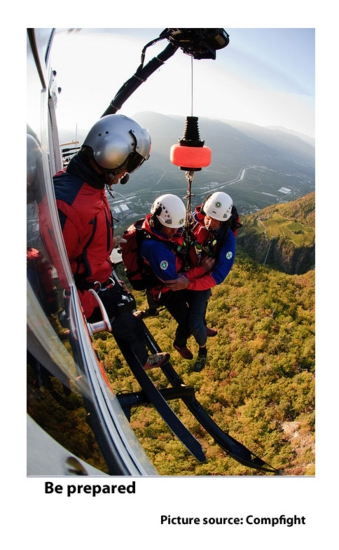Braving the backcountry – especially if you’re travelling alone – can be a daunting experience.
Pitting yourself against nature can also be one of the most satisfying, as any outdoor enthusiast will agree.
But the inherent dangers can far outweigh the pleasure unless you make sure you are well prepared for the journey.
A basic survival kit could literally mean the difference between life and death in extreme situations – where your mobile phone won’t get a signal and help could be a long way away.

Number One Priority
A medical kit should be your number one priority – Lifesystems have a comprehensive range to cater for every eventuality.
Small enough to pack down at the bottom of your rucksack, this really could be a life-saver if you injure yourself miles from anywhere.
Sterile wipes can help fight off infection in case of a serious cut, and plasters and bandages to cover any wound should always be close at hand.
A survival – or space – blanket will maintain your body heat as temperatures plunge, and will also act as a sun shield in the extreme heat.
A compass and emergency whistle are also a given, as is a fire-making kit; not only will a fire provide heat, it can also act as a smoke signal to rescuers.
A multi-tool or Swiss army knife will always come in handy for a multitude of reasons – not least to cut up kindling to get a blaze going.
Most Serious Concern
Surviving without food for a few days is not as life-threatening as going without water. After 24 hours, dehydration from lack of fluids is likely to be your most serious concern, so ensure you carry a water bottle at all times. Water purification tablets could also prove crucial in cases of emergency.
A hand-held or headlight torch will not only bring some comfort if used sparingly in the darkest hours, but can also act as a beacon to would-be rescuers.
Always carry a pen and paper; if you are mobile enough to move on, however slowly, leave a note weighed down under stones to let anyone know in which direction you’re headed. And carry a few transparent plastic bags to keep everything watertight in extreme conditions.
Always carry a length of rope in your rucksack – you never know when it might come in handy.
- The number one rule is to let someone know where you’re going – and give them some idea of your expected return.
Read Aron Ralston’s 127 Hours to get a real taste of what can happen if you head off on your own….
Nicki Williams writes for outdoor specialists Gear-Zone, where you’ll find everything for an adventure into the great outdoors, including waterproof clothing, winter jackets, walking and hiking shoes and boots, emergency medical kits and survival blankets
Picture source: Compfight

